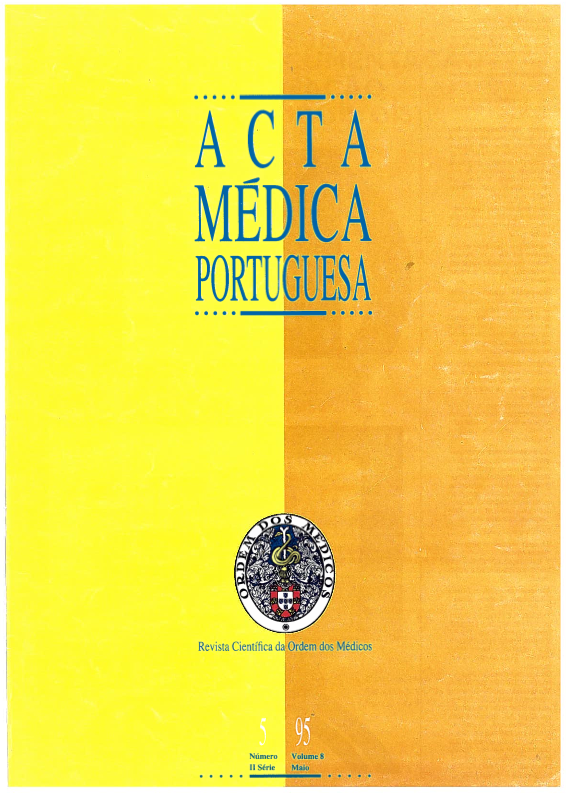The assessment of functional status in the elderly. The application of a Portuguese version of the COOP/WONCA charts.
DOI:
https://doi.org/10.20344/amp.2703Abstract
The outcomes of medical care can be measured in terms of health or functional status. Several outcomes measures have been developed in the last years but, there are several difficulties with cross-cultural adaptations. This study is mainly an application exercise to a group of old people of a Portuguese version of the COOP/WONCA charts.A descriptive cross-sectional study with a component of qualitative analysis was done. Population basis was the elderly registered in the lists of five family doctors in two Portuguese health centres (Lumiar and Costa da Caparica) in the Lisbon region. A random sample of 189 patients (aged 65 and over) was interviewed. The studied variables were: gender, age, civil status, literacy, co-morbidity and dimensions of the COOP/WONCA charts. Univariate and bivariate analysis was done. A qualitative analysis was also performed to approach relevancy and acceptability of the charts to the elderly.23% of the elderly had important limitations (values 4 and 5 of the charts) in physical fitness, 25% had unfavourable repercussions in feelings (values 4 and 5), 12% had important difficulties (value 4 and 5) in every-day life activities and 7% had important limitations in social life. 66% had no changes in their health in the last two weeks, 18% got better and 16% got worse. 21% valued their overall health as fair or poor, 47% as good and 24% as very good or excellent. Moderate to severe pain in the last two weeks was reported by 55% of the patients. Female reported in general worse scores than males. Statistical significance was found in the association between the number of the co-existent health problems in the same person (co-morbidity) and the values of some dimensions of the COOP/WONCA charts. In the half of the cases where the Katz index was measured there were non-concordance with the measures of the daily life of the COOP/WONCA charts. The charts had good acceptability and applicability but also some difficulties for illiterate elderly.Although the use of COOP/WONCA charts could be difficult with elderly patients the present study showed its applicability and utility in the everyday clinical practice. The charts open new possibilities for international comparisons on functional status assessment.Downloads
Downloads
How to Cite
Issue
Section
License
All the articles published in the AMP are open access and comply with the requirements of funding agencies or academic institutions. The AMP is governed by the terms of the Creative Commons ‘Attribution – Non-Commercial Use - (CC-BY-NC)’ license, regarding the use by third parties.
It is the author’s responsibility to obtain approval for the reproduction of figures, tables, etc. from other publications.
Upon acceptance of an article for publication, the authors will be asked to complete the ICMJE “Copyright Liability and Copyright Sharing Statement “(http://www.actamedicaportuguesa.com/info/AMP-NormasPublicacao.pdf) and the “Declaration of Potential Conflicts of Interest” (http:// www.icmje.org/conflicts-of-interest). An e-mail will be sent to the corresponding author to acknowledge receipt of the manuscript.
After publication, the authors are authorised to make their articles available in repositories of their institutions of origin, as long as they always mention where they were published and according to the Creative Commons license.









